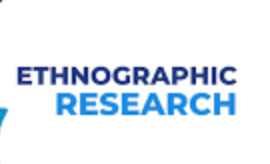In the realm of research methodologies, ethnography stands out as a powerful tool for delving into the intricacies of human behavior, culture, and social dynamics. Rooted in anthropology, ethnographic research offers a unique lens through which to understand people’s lived experiences in their natural environments. Let’s embark on a journey to uncover the essence of ethnographic research and its transformative potential.
What sets ethnographic research apart from traditional quantitative approaches?
Unlike surveys or experiments, which often rely on predefined questions and controlled settings, ethnography immerses researchers in the everyday lives of their subjects. By observing and participating in social contexts firsthand, researchers gain deep insights into the cultural norms, rituals, and practices that shape people’s behavior and interactions.
One of the key principles of ethnographic research is participant observation. Researchers become active participants in the communities they study, building relationships, gaining trust, and gradually gaining access to intimate aspects of people’s lives. Through keen observation and open-ended conversations, researchers uncover hidden patterns, unspoken rules, and underlying meanings that may elude conventional research methods.
Ethnographic research also emphasizes the importance of context. Rather than isolating variables or abstracting data from its real-world setting, ethnographers embrace the complexity and richness of human experience. By situating their findings within the broader social, historical, and cultural context, researchers gain a holistic understanding of the phenomena under study.
Moreover, ethnographic research is inherently iterative and flexible. As researchers immerse themselves in the field, they continuously refine their research questions, adapt their methods, and revise their interpretations in response to new insights and unexpected discoveries. This iterative process allows for deeper exploration and richer storytelling, capturing the nuances and complexities of human behavior in all its richness.
So, what are some practical applications of ethnographic research?
Ethnography has diverse applications across various fields, from anthropology and sociology to marketing, design, and healthcare. In anthropology, ethnographers may study indigenous communities, urban neighborhoods, or online subcultures to understand cultural change, identity formation, and social dynamics. In marketing and design, ethnography helps uncover consumer preferences, user behaviors, and unmet needs, informing product development and innovation. In healthcare, ethnographic research sheds light on patient experiences, healthcare practices, and cultural beliefs, ultimately improving the delivery of care and health outcomes.
In conclusion, ethnographic research offers a unique approach to understanding the complexities of human behavior and culture. By immersing themselves in the field, ethnographers unveil insights that transcend mere data points, revealing the rich tapestry of human experience in all its diversity. In an increasingly interconnected and multicultural world, ethnographic research remains a vital tool for bridging divides, fostering empathy, and advancing knowledge across disciplines.









